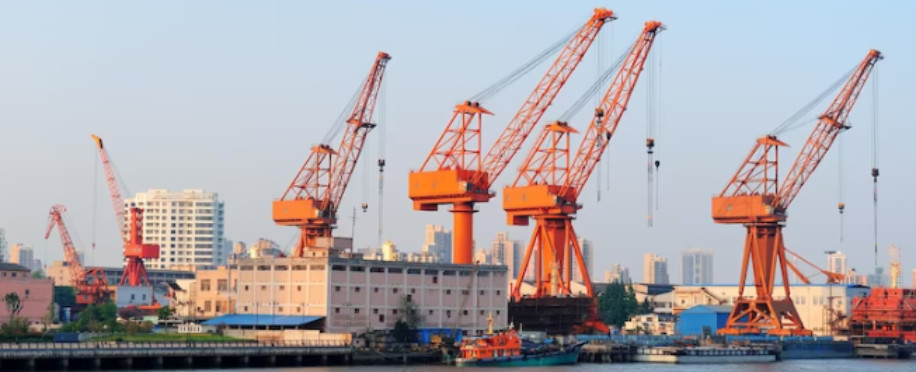Copyright © 2025 lmitac.com All Rights Reserved. Contact - Terms and Conditions - Privacy Policy - Quality Policy - Become an instructor - Vacancies - Sitemap
London Maritime Academy is a trade name for London Premier Groupversion: 2.9.0
London Maritime Academy is a trade name for London Premier Group

Posted on : 1/5/2024, 12:22:47 AM
Following the shipbuilding standards is the essential element in achieving safety and stability in the maritime industry based on the international construction guide.
The implemented international quality structures in a shipyard make your work structure more efficient and empower the overall marine industry with strong ships that require minimal maintenance and offer more productivity.
We will share fantastic information on construction and shipbuilding standards with you in this article.
The shipbuilding standards refer to all the sets of guidelines, specifications, and criteria according to the international construction code for ships. They help shipbuilders ensure the best quality, safety, and performance of ships during their hull design, construction, and product operation.
The standards related to shipbuilding promote reliability and efficiency in the shipbuilding process and cover a wide range of aspects related to ship design, ship recycling, vessel coating, construction materials, and systems.
Moreover, these shipbuilding standards are developed by various international, national, and industry organisations including the International Maritime Organisation (IMO), the International Association of Classification Societies (IACS), and the International Organisation for Standardisation (ISO).
Following shipbuilding standards and regulations is essential not only to ensure the safety of vessels but also to protect the environment and facilitate global trade through a standard set of expectations and criteria for ship design and construction sections.
Although there is no specific ISO standard dedicated solely to shipbuilding, there are some ISO standards that are related to different aspects of a shipbuilding project.
The International Organisation for Standardisation (ISO) developed and published standards for different marine industry points, including shipbuilding and shipbreaking demands.
ISO 3834 specifies quality requirements for welding processes and is relevant to shipbuilding, ensuring that welding activities in ship construction meet exceptional and strategic standards.
Addresses the preparation of steel surfaces on ships before applying paints, coatings, and corrosion protection measures to achieve effective shipbuilding in each stage.
Covers subsea production systems, including guidelines for the design, installation requirements, and process of equipment used in offshore and subsea oil and gas production.
Remember that to follow the latest shipbuilding standards, you must attend professional maritime logistics courses to help you understand all the technical details and achieve a better result from your shipbuilding and marine repair program.
There is a detailed list of specifications and guidelines for the designing form and construction technology of ships to ensure top quality in all related factors, such as vibration stability and overall performance, to achieve safety and functionality.
The shipbuilding standards focus on the used materials and their gross ability to achieve the required strength, durability, and corrosion resistance, ensuring that all the used materials meet the demanding conditions of the marine environment and the shipped tonnage.
Covering all types of connection requirements in ship construction, based on the specified welding and joining methods, will ensure robust, reliable bonds between different parts of the ship, maintaining structural integrity, longevity, and safety.
Covering various safety aspects in the shipbuilding and marine structures is fundamental in the shipbuilding standards as it guarantees your staff's and the ship's safety.
This shipbuilding standard establishes regulations for fire safety, life-saving equipment, navigation systems, and other features ensuring safe maritime operations.
However, the safety evaluation may differ in the military and navy contract editions. It will include more required data and prevention standards to achieve the highest insurance and stability levels.
There are many environmental concerns in shipbuilding, including regulations for emissions, used fuel type, machinery, and other measures to minimise the ecological impact of different maritime activities and human health.
The shipbuilding environmental sector aims to keep the ship construction and building ongoing in the shipyard without badly impacting the marine environment.
Working with procedures that ensure top-quality meetings for testing and inspecting ships during and after ship construction practice based on established shipbuilding standards helps you achieve the quality and safety of the boats and shipyards.
All companies in the marine industry are asked to follow the shipbuilding regulations report and technology classification; however, if you are wondering about the benefits, then let us share with you these quality reasons:
Following shipbuilding standards ensures ship safety, reduces the risk of accidents, and protects people's lives and assets.
Ship compliance with national and international standards is required to prevent legal issues and ensure seamless operations in the global maritime industry in the building and repairing structures.
Meeting or exceeding shipbuilding standards boosts a maritime business's reputation for quality and safety, fostering stakeholder trust and attracting valuable opportunities.
Following the shipbuilding standards will help you empower your business on different levels, ensure quality operations, and achieve better results and revenue.
Therefore, you need to keep your ships compliant with the latest regulations, standards, and requirements by training your team and getting the required help from professionals.